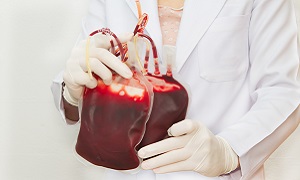Best Lymphoma Treatment Doctors in India
Best Lymphoma Treatment Hospitals in India
- City: Bengaluru, India
Hospital Highlights:
- Fortis Hospital Bannerghatta, Bengaluru was established in 2006.
- The hospital is a 276 bedded multi-specialty tertiary care facility.
- The hospital specializes in cutting-edge medical technology and dedicated patient care services.
- The hospital is equipped with state-of-the-art technologies like trans-radial angioplasty, trans-abdominal cardiac surgery, and computerized TKR navigation surgery.
- The hospital provides specialty medical services in cardiology, cardiac surgery, orthopedics, neurology, neuro-surgery, GI, and Minimal Access Surgery (MAS).
- City: Chennai, India
Hospital Highlights:
- Fortis Malar was established in 1992 and was formerly known as Malar Hospital.
- The hospital specializes in cutting-edge medical technology and dedicated patient care services.
- The hospital is multi-specialty, tertiary care facility with 180 beds.
- The hospital offers comprehensive medical care in specialties such as cardiology, cardio-thoracic surgery, neurology, neurosurgery, orthopedics, nephrology, gynecology, gastroenterology, urology, pediatrics, and diabetes.
- City: New Delhi, India
Hospital Highlights:
- Established in 1996, Pushpawati Singhania Research Institute is one of the top hospitals in the NCR region, as well as one of the top facilities in India for gastroenterology. The hospital is one of South Asia’s first institutes in medical and surgical treatment for diseases related to digestion.
- The hospital is equipped with state-of-the art facilities coupled with the latest equipment as well as renowned consultants from various parts of India as well as other parts of the world.
- City: New Delhi, India
Hospital Highlights:
- State-of-the-art technology and devoted healthcare professionals have been brought together under one roof at Venkateshwar Hospital to provide genuine medical care. The hospital’s professionals work together as a team to deliver the best possible treatment to their patients, using the most sophisticated equipment and information technology.
- Venkateshwar Hospital’s mission is to attain global excellence in healthcare by employing evidence-based, ethical clinical practices and cutting-edge technology by a team of highly skilled experts.
- City: New Delhi, India
Hospital Highlights:
- Sir Ganga Ram Hospital, New Delhi is known to provide the latest medical procedures with the latest technology in all of its units.
- The hospital has a team of reputed doctors, nurses, and healthcare professionals that ensure that patients receive quality care at affordable costs.
- Staffed with a team of highly qualified doctors, dedicated nurses, and paramedical and non-medical staff, the hospital aims to lead in healthcare delivery, medical education, training, and research.
- As per the vision of the founder, the hospital also provides free treatment to the economically weaker sections of society.
- Sir Ganga Ram Hospital also provides training to young doctors under the Diplomate in National Board(DNB) program. The DNB program at the hospital was started in 1984 and it is known for currently running the maximum number of DNB specialties in the country. It also has the distinction of having the first bone bank in India.
- City: Kerala, India
Hospital Highlights:
- Established in 2019, Apollo Adlux Hospital is the first Apollo Hospital in Kerala and the 73rd hospital owned by Apollo Group in India. With the state’s most advanced, comprehensive healthcare infrastructure and cutting-edge technologies, Apollo Adlux Hospital stands as an example of medical excellence in Kerala.
- With over 34 multi-specialty departments, the hospital believes in providing the best quality treatment to its patients at affordable rates, ensuring comfort at their difficult times.
- The 300-bed hospital is managed by a team of highly qualified and experienced experts who delivers exceptional hospitality to their patients and treats them with great compassion.
- With its affiliation with the Apollo Hospitals Group, the hospital aims in providing patients with top-notch healthcare services while also serving communities in Kerala.
- The hospital has good railway and road connections, and is conveniently close to Cochin International Airport.
- City: Gurugram, India
Hospital Highlights:
- Situated near DLF Cyber City, Gurugram, Narayana Superspecialty Hospital is one of the top medical facilities in the Delhi NCR region, catering to the needs of the people. Known for its commitment to quality medical care and patient service, the hospital is a state-of-the-art facility with planned and well-equipped sections, which includes a spacious OPD area as well as comfortable patient rooms.
- It is the closest super-specialty hospital from Indira Gandhi International Airport towards Gurugram, and also the nearest super specialty hospital from DLF Cyber City. It is also close to major residential areas in Gurugram.
- It is part of the renowned Narayana Health Group. Established in 2000, by Dr. Devi Shetty, a renowned cardiac surgeon, it has grown to be one fo India’s leading healthcare groups.
- City: Noida, India
Hospital Highlights:
- Fortis Hospital, Noida, stands as one of the oldest and most trusted healthcare institutions in the region, setting a benchmark for comprehensive medical care.
- As the second mega hub hospital in the Fortis Healthcare Group, Fortis Hospital, Noida, upholds a legacy of trust among more than 1.2 million patients. By integrating top-tier professionals with cutting-edge technology, the hospital delivers superior treatment across various medical disciplines.
- Specializing in advanced Neurosciences, Orthopedics, Kidney and Liver Transplant Programmes, Fortis Hospital, Noida has successfully performed over 1,500 transplants, solidifying its reputation as a leader in specialized medical interventions.
Lymphoma
The cancer of the lymphatic system is called lymphoma. The lymphatic system comprises lymph nodes and vessels that are responsible for the movement of the lymphatic fluid throughout the body. White blood cells that fight the infections are present in the lymph fluid. The lymph nodes prevent the spread of infection. Lymphoma affects various parts of the body like bone marrow, lymph nodes, thymus gland, tonsils and spleen. Depending upon the type of lymphoma and the stage, the treatment for lymphoma varies. The cells of the lymphatic system are lymphocytes from where the lymphoma starts.
Types of Lymphoma
There are two main types of lymphoma. They are Hodgkin’s lymphoma and Non-Hodgkin’s lymphoma. Formerly, Hodgkin’s disease was the name used for Hodgkin’s lymphoma. The other types of lymphoma are:
- Chronic lymphocytic leukemia – It is a type of cancer that occurs in the bone marrow (the spongy tissue filling the inside of the bones) and blood.
- Cutaneous B-cell lymphoma – It is rare cancer that affects the skin. It begins in the B-cells, a type of white blood cells.
- Cutaneous T-cell lymphoma – This is rare cancer affecting the T-cells, a type of white blood cells. The T-cells are responsible for the germ-fighting mechanism of the immune system.
- Waldenstrom macroglobulinemia – The bone marrow produces abnormal white blood cells in large numbers in this rare cancer. The abnormal white blood cells impair the circulation that results in complications.
Causes of Lymphoma
When the lymphocytes (white blood cells) that fight diseases develop genetic mutation, the condition causes lymphoma. The cells multiply instantly due to the mutation that causes multiplying diseased lymphocytes. While the normal cells die, the diseased lymphocytes continue to live due to this genetic mutation. As a result, there are numerous diseased lymphocytes in the lymph nodes that cause swelling of the lymph nodes, spleen and liver.
This uncontrolled cell growth is largely responsible for causing lymphoma. People suffering from lymphoma have these diseased cells that continue to live and not die. However, it’s still unclear what actually causes lymphoma.
Symptoms of Lymphoma
In the early stage of this cancer, there are no symptoms. On physical examination by a doctor, you might come to know about the swelling in the lymph nodes. When there are small, soft nodules felt under the skin, it reveals that there is a swelling in the lymph nodes. One may feel the lymph nodes in the neck, armpit, upper chest, groin and stomach region.
There are various symptoms associated with lymphoma. The symptoms of lymphoma are not easy to detect and hence, the patient often learns about cancer in a later stage. These symptoms are:
- Unexplained weight loss
- Pain in the bones
- Painless swelling of the lymph nodes in various parts of the body
- Fever
- Cough
- Shortness of breath
- Itchy skin and rashes in the skin folds
- Stomach pain
- Pain during alcohol consumption
- Fatigue
- Night sweats
- Enlarged spleen
Diagnosis of Lymphoma
If the physical examination reveals symptoms of lymphoma, the doctor takes a biopsy for the diagnosis of cancer. For a biopsy, there is the removal of cells from the enlarged lymph nodes. A hematopathologist examines the cells to check for the lymphoma cells. If the lymphoma cells are present, the doctor also tells the type of cells. Upon finding the presence of lymphoma cells, the patient must undergo further testing to know the extent of the spread of these cells.
The various tests for lymphoma are blood testing, chest x-ray, testing of the lymph nodes and imaging scans like magnetic resonance imaging (MRI) or computed tomography (CT) that identify enlarged lymph nodes and additional tumors.
Physical Examination
Lymph node removal
Blood testing
Bone marrow sample for testing
Imaging scans
Treatment Options for Lymphoma
Regular monitoring

Radiation therapy
Chemotherapy

Bone marrow transplant

Other treatment
Immunotherapy drugs kill the cancer cells while chimeric antigen receptor (CAR)-T cell therapy takes healthy T cells from your body and fights the cancer cells.















